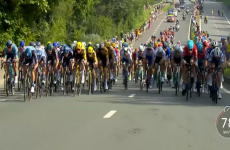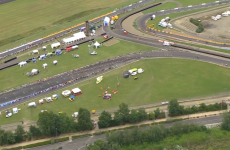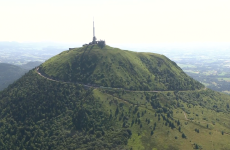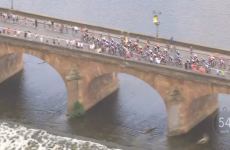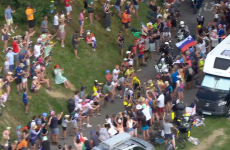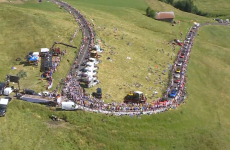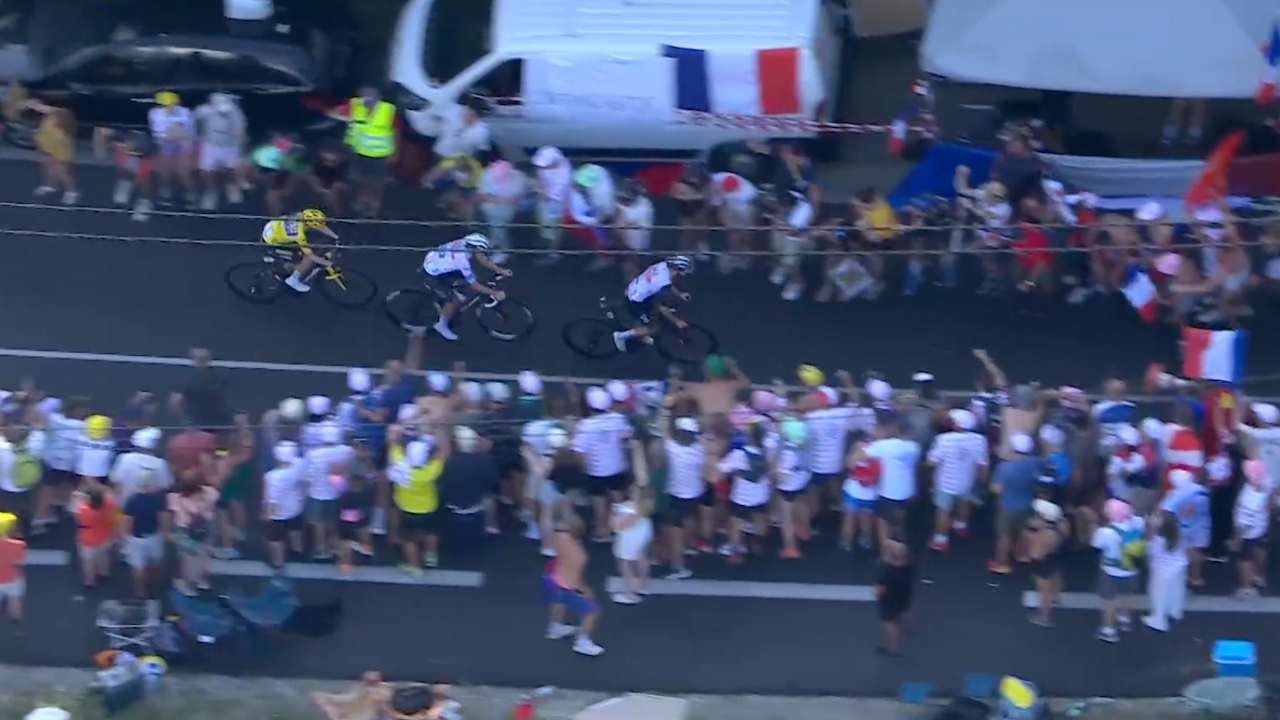Description
July 19, 2023
Tour de France 2023 – Stage 17 – Saint-Gervais Mont-Blanc – Courchevel : 165,7 km
For three weeks of the year cycling fans put their bikes away and root themselves to their sofas,
Show more...
July 19, 2023
Tour de France 2023 – Stage 17 – Saint-Gervais Mont-Blanc – Courchevel : 165,7 km
For three weeks of the year cycling fans put their bikes away and root themselves to their sofas, eyes fixed on their television screens as they watch one of the greatest races of the season play out in front of them. We are, of course, talking about the Tour de France – the one bicycle race that nearly everyone on planet Earth has heard of. This three-week race is regarded by many as one of the toughest sporting events in the world. With 21 gruelling stages to complete over a 23-day period, adding up to around 3,500km in total, the Tour de France is a race of pure endurance. The winner isn’t necessarily the strongest rider, but rather the one who can survive the most suffering, day after day. The 2023 route, which is due to start in the Basque Country, Spain, and finish in Paris, France, features three leg-breaking summit finishes, one individual time trial and a high-mountain stage that will see the riders take on no less than 5,200m of climbing. The rest of the route is made up of flat and hilly stages, offering the sprinters, puncheurs and escape artists – those who aren’t as focussed on the famous yellow jersey – plenty of opportunities to take a career-defining stage win.
If there was any doubt about the destination of the Tour de France’s yellow jersey following the momentous events of the stage 16 time trial in Combloux, that was surely extinguished on stage 17 over the Col de la Loze.
Jonas Vingegaard (Jumbo-Visma) may not have won the queen stage of the Tour, but once again he put on a demonstration as to why he’s the race’s strongest man as his main rival Tadej Pogačar (UAE Team Emirates) definitively cracked 15km from the finish, midway up the hors catégorie climb.
The Slovenian battled on with teammate Marc Soler for company, though having lost five minutes to Vingegaard on the road to the summit, the only real question surrounding the ‘big two’ now concerns how large the gap between them will be in Paris.
Up ahead, it was a day of glory for the breakaway and for Felix Gall (AG2R Citroën), who rounded off what has been a breakthrough summer campaign following his June stage win at the Tour de Suisse.
The Austrian climber proved the strongest from the day’s 34-man breakaway, leaving the likes of Simon Yates (Jayco-AlUla), Pello Bilbao (Bahrain Victorious), and David Gaudu (Groupama-FDJ) behind 13km from the line and 7km from the top.
He held off a dogged pursuit by Yates to solo across the summit of the Loze and race onto the final ramp at Courchevel’s airport runway to take the biggest win of his career. The Briton came home for second place, 34 seconds down. Bilbao rounded out the podium 1:39 down on Gall, with Vingegaard following shortly afterwards to surely seal his second Tour victory.
“It’s incredible. I don’t know what to say. This whole year has been incredible and now to do so well in the Tour de France and to win the queen stage, it’s incredible. I just want to say thank you to the team. They have given me so much,” Gall said.
“It’s not easy to do a three-week stage race and I also had the role of leader after a few days, so we slowly focussed on that. I was stressing myself about that also. It’s not easy but in the last few days I’ve been more and more comfortable.
“I was feeling really great. Actually, I was feeling great all day. I didn’t think the break would have a big chance to go for the victory. Before the last climb I was feeling super good and just looking by the numbers I knew that if we did this pace all day, I’d be in a good spot to give it a try. Ben did a great job on the last climb and I was just waiting for the steep part to attack.”
Behind them, the remainder of the GC contenders raced home in dribs and drabs, spread across the road by minutes at the end of another arduous day in the saddle.
At 3:43, Adam Yates (UAE Team Emirates) took control of third overall, put 1:11 into his rival Carlos Rodríguez (Ineos Grenadiers). Waiting eyes, however, were trained on stopwatches and the toiling Pogačar. Having imploded 40 minutes earlier, he’d finally finish the stage 7:37 down – 5:45 behind Vingegaard – leaving him a massive 7:35 down in the general classification, though still in second place.
Adam Yates now lies third at 10:45, with Rodríguez now at 12:01 and looking over his shoulder at Simon Yates (12:19) and Bilbao (12:50) ahead of the final mountain stage to Le Markstein on Saturday.
HOW IT UNFOLDED
Stage 17 of the Tour de France would see the 155 remaining riders take on the queen stage of the race, passing four classified climbs, including two first-category mountains plus the HC-rated mammoth of the Col de la Loze (28.1km at 6%).
The attacks came from the start of the 165.7km stage, with a fast and frantic start as riders fought to make the break of the day. Early attacks came from polka-dot jersey holder Giulio Ciccone (Lidl-Trek) and his rival for the mountain classification Neilson Powless (EF Education-EasyPost), among others, with 65 points up for grabs throughout the day.
It wouldn’t be so easy for those hoping to make the break, though, with Jonas Vingegaard’s Jumbo-Visma pushing the pace on the first climb of the day, the first-category Col de Saisies (13.4km at 5.1%).
Ciccone, Powless, and their handful of companions up the road would soon be joined by what remained of the peloton on the climb, including a Tadej Pogačar who had fallen after just 17km of racing.
The lead group – GC men and breakaway hopefuls – pushed on to the top together, with Ciccone nipping out to grab 10 points at the top. The Italian pushed on down the descent, joined by Julian Alaphilippe (Soudal-QuickStep) and Krists Neilands (Israel-Premier Tech) in what would end up being the day’s main breakaway.
Groups would come across on the way down and up the next climb, the Cormet de Roselend (19.9km at 6%), with 34 riders eventually making the break. Along with Ciccone and Alaphilippe, major names included two apiece from Jumbo-Visma and UAE Team Emirates – Tiesj Benoot, Wilco Kelderman, Vegard Stake Længen, and Marc Soler – as well as Thibaut Pinot, David Gaudu (Groupama-FDJ), Jack Haig (Bahrain Victorious), Ben O’Connor, Felix Gall (AG2R Citroën), Alexey Lutsenko (Astana Qazaqstan), Simon Yates (Jayco-AlUla), and Mattias Skjelmose (Lidl-Trek).
The group pushed their advantage to a slim 1:30 on the way up, Jumbo-Visma limiting the gap, before Ciccone duly jumped out to add another 10 points to his total at the top of the Cormet de Roselend.
On the long descent to the base of the next climb, they’d double their advantage to three minutes, but that was about it, the gap only coming down from there onwards. Jumbo-Visma continued to set the pace in the peloton behind while once again it was Ciccone who led the way over the second-category Côte de Longefoy (6.6km at 7.5%). Another five points to take his total to 88, 30 up on Powless and one more on Vingegaard.
The Col de la Loze loomed next, with a short descent and some time in the valley lying between the top of the Longefoy and the start of the race to the Tour’s highest point.
Ineos Grenadiers led the peloton onto the climb at 2:50 down on the break, while once the gradients hit on the early slopes of the first section, riders immediately began to drop from both break and peloton.
The break would be more or less cut in half as even strong climbers like Ciccone, Skjelmose, Lutsenko, Soler, and Alaphilippe were spat out the back in the break. The peloton, meanwhile, quickly slimmed further to a select group of just under 20 GC men, domestiques, and climbers led by Ineos Grenadiers men Jonathan Castroviejo and Omar Fraile.
With Ineos in charge at a moderate rather than furious pace, there was little action to shout about on the early slopes of the climb. Indeed, the gap to the breakaway barely moved from the 2:30 from the start of the Loze 35km out until the GC group hit the mid-climb ‘pause’ of the short descent and flat section at Méribel.
Heading out of the town and into the final 15km of the stage and final 8km of the climb, Pogačar suddenly cracked at the rear of the group. With his team not setting the pace or seeking to pressure Vingegaard, it had already looked as though there was little chance of a challenge materialising, and as he dropped backwards and Jumbo-Visma took to the front, that was only confirmed.
Up front in the break, Jayco-AlUla had detonated the group with Chris Harper and Simon Yates, though it was Gall who made the first acceleration with 13km to go. Behind the Austrian it was Majka, Harper and Yates in the chase while Benoot drifted back to help Kuss make the pace for Vingegaard.
Soon enough, Benoot’s pace told as he, Vingegaard left the rest of the GC hopefuls behind, while Pogačar battled on into the final 5km of the climb a minute down in Soler’s wheel. Another UAE man, Adam Yates, clung onto the Jumbo mini-train longer than the rest, but soon enough Vingegaard was out on his own and attacking on the steepest slopes towards the summit.
The Dane linked up with Kelderman on the double-digit gradients in the final 3km of the climb, two minutes behind Gall, while Pogačar fought on another two-and-a-half minutes back.
Their progress was hindered towards the top as a stalled motorcycle held up an organiser’s car, forcing them to put feet down and push past. However, by then there was already little chance of making it across to Gall, still well up the road and pursued by Yates at 20 seconds.
Kelderman dropped away a kilometre from the summit, leaving Vingegaard to ride solo over the final 8km, crossing the summit 1:30 down on Gall having caught all but the Austrian and Simon Yates.
Gall still had the job to do of holding off Yates and staying upright on the technical descent down into Courchevel, avoiding the mattresses lining the outer edge of corners as safety measures. He duly did just that, and even expanded his advantage on the final uphill run to the line, a famous win secured.
Vingegaard came in among the breakaway chasers at 1:52 back, leaving a long wait for the remainder of the GC contenders on what had been a brutal day out in the mountains. He now leads the Tour by 7:37 from Pogačar, setting up the prospect of the biggest Tour winning margin since Jan Ullrich’s 9:09 over Richard Virenque in 1997.
Results :















